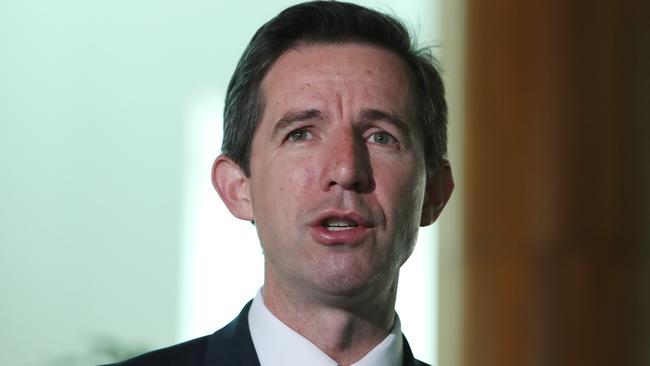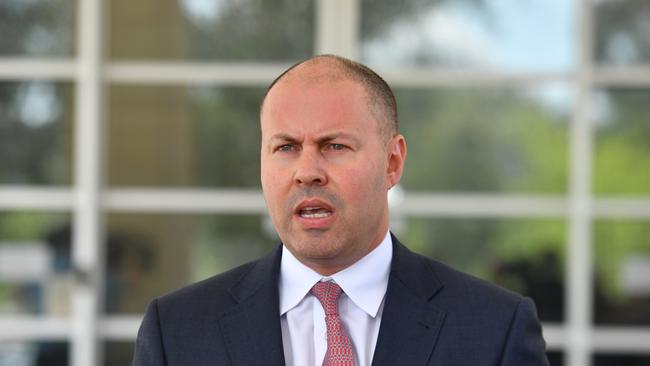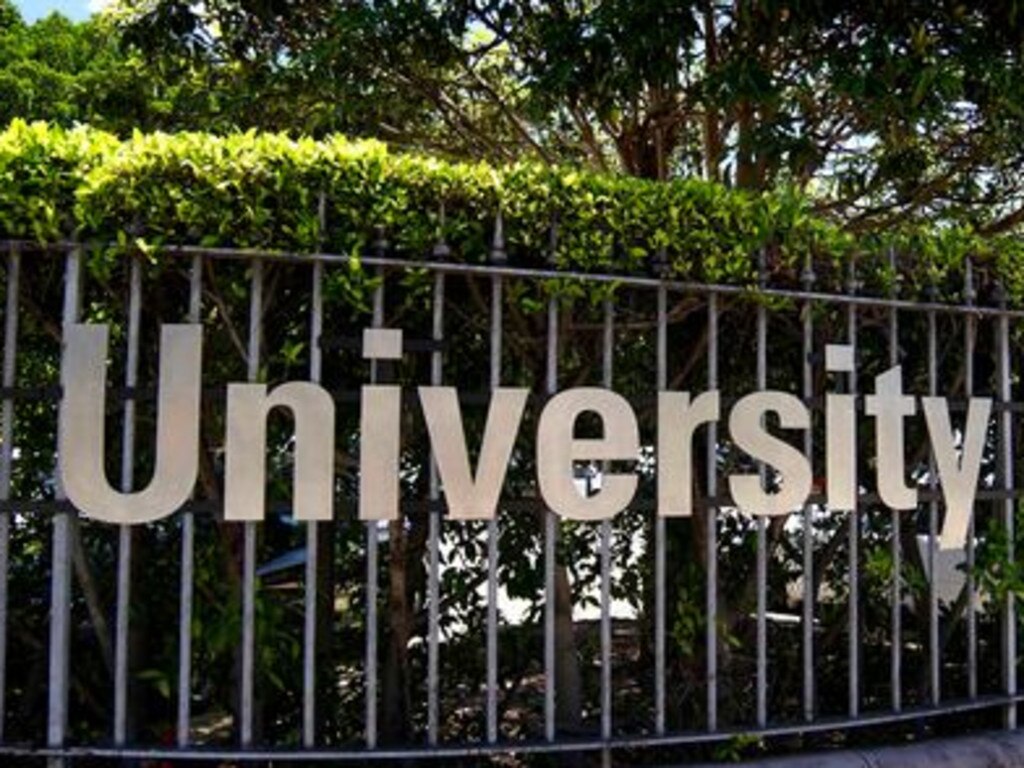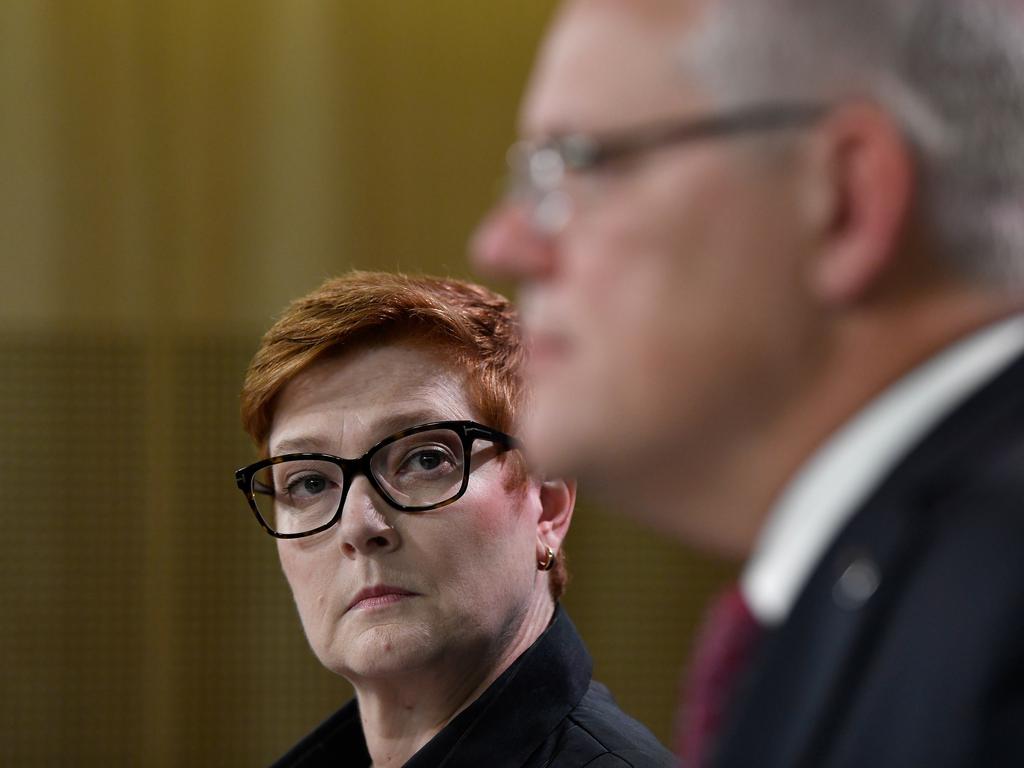Coronavirus: Virus crisis could cost nation $13bn
Australia could face a $13bn economy hit amid warnings over the international health crisis.

The Australian economy faces a coronavirus hit of up to $13bn in the first half of the year amid warnings from the mining sector that the international health crisis is casting “uncertainty over economic outlooks and commodity markets”.
Senior government sources told The Australian the fallout in coming months from coronavirus could be “substantial” and may put a “blowtorch” on the government’s surplus.
Phil Honeywood, appointed to lead the government-industry body charged with co-ordinating the education sector response to the epidemic, said travel restrictions could cut, in a worst-case scenario, up to $6bn to $8bn from education exports in the first half of the year.
The travel ban prevents up to 250,000 Chinese students who were planning to attend Australian universities, colleges and schools from coming to the country for at least the next two weeks.

The Chinese tourism market, a major revenue driver for Australia, was forecast to pump up to $1bn into the economy each month for the remainder of the financial year, supporting airlines, restaurants, hotels, tourism operators and attractions.
Ahead of the Reserve Bank of Australia board meeting on Tuesday, Josh Frydenberg conceded the combined pressures of the coronavirus and bushfires would have a “significant impact” and did not rule out negative growth in the economy.
In response to the fallout from the coronavirus outbreak, the government will hold roundtable meetings with the tourism and higher education sectors on Monday to discuss how to respond to travel bans on foreign nationals travelling from China.
The Australian understands, while there are direct and immediate impacts on the tourism and higher education sectors, there may also be a longer-term hit on exports.
Produce, including seafood, may be affected and resource exports could be exposed if China imposes restrictions at its ports. With the government relying on iron ore and coal to drive the surplus, a pre-budget submission lodged by the Minerals Council of Australia calls on Treasury to continue accounting for “price risks” in budget planning.
Releasing the Mid-Year Economic and Fiscal Outlook in December, the Treasurer said the government had made “prudent assumptions for commodity prices”, adopting conservative forecasts for iron ore, metallurgical and thermal coal prices.
In its submission the MCA, which represents the nation’s mining and resources sector, warned of the impacts of coronavirus on China’s economy and a wider slowdown in world GDP growth. The submission said Australia must be prepared to “manage the potential impacts of commodity price cycles” and pressures on the sector.
“The rise of protectionist sentiment in several key economies is a key risk to sustaining higher rates of global economic growth and could affect commodity markets and price. Australia’s annual rate of GDP growth is declining and this has coincided with diminishing growth in labour productivity. Ultimately productivity, not debt, drives long-term economic growth,” the submission said.
The MCA provided an analysis of coronavirus, contrasting the fallout with the 2003 severe acute respiratory syndrome outbreak that hurt China’s industrial, tourism and services sectors.
It noted commodity prices “seem to have dipped” during the SARS incident, with a fall of demand from Australia for bulk commodities and iron ore down 2 per cent and thermal coal 17 per cent across the calendar year.
“This immediate impact was short-lived, with prices and volumes recovering, coming at the beginning of the extraordinary surge in Chinese economic growth which continues to this day.”
The MCA said while Hubei province, epicentre of the coronavirus outbreak, hosts “considerable steel producing”, the bulk of national production remained along the coast and iron ore prices currently remained stable.
“Hubei is a major manufacturing centre and transportation hub, which means downstream metals commodities may see more uncertainty,” the report said. “Copper prices have dipped, though this may relate to media reports of the decision by Shanghai port authorities, the main entry point for refined copper products, to extend leave for workers as a precaution.”
A BHP spokesman said the company was “monitoring the situation” and following the advice of relevant authorities to protect the health of its employees.
The Australian understands BHP’s Shanghai office will remain closed until next Monday and the company has advised employees to limit their travel in China to business critical only.
MCA chief executive Tania Constable said mining was “responsive and responsible, particularly during times of challenge”.
“Mining provides an economic bedrock for the Australian government to meet its immediate and long-term challenges,” Ms Constable told The Australian.
Mr Frydenberg said factors outside the government’s control — headlined by coronavirus — would affect the Australian economy and potentially trigger a slowdown.
“What we know is these events outside of our control are going to have a significant impact on the Australian economy. China is a critical economic partner for us. They’re the greatest source of foreign students — over 200,000 into Australia — (and) 1.4 million tourists,” Mr Frydenberg said.
“Together, those two sectors provide about $16bn to the Australian economy. And they are the recipients of around 30 per cent of our trade. But it’s too early to give a definite view about the economic impact because we don’t know how severe and how sustained the virus outbreak is.”
While the RBA is not expected to move on rates when it meets on Tuesday, it is expected to downgrade economic forecasts in response to the coronavirus and bushfires. RBA governor Philip Lowe will outline his forecast for the year in a keynote speech in Sydney this week.
Trade and Tourism Minister Simon Birmingham said “there is no doubt” travel restrictions on Chinese visitors would have a “significant impact on our tourism industry and education sector”.
“The extent of the economic losses is impossible to predict because we don’t know how long these measures will remain in place,” Senator Birmingham said.
The government has announced a $76m bushfire recovery tourism package, which Senator Birmingham said would now take on “even greater significance”.







To join the conversation, please log in. Don't have an account? Register
Join the conversation, you are commenting as Logout